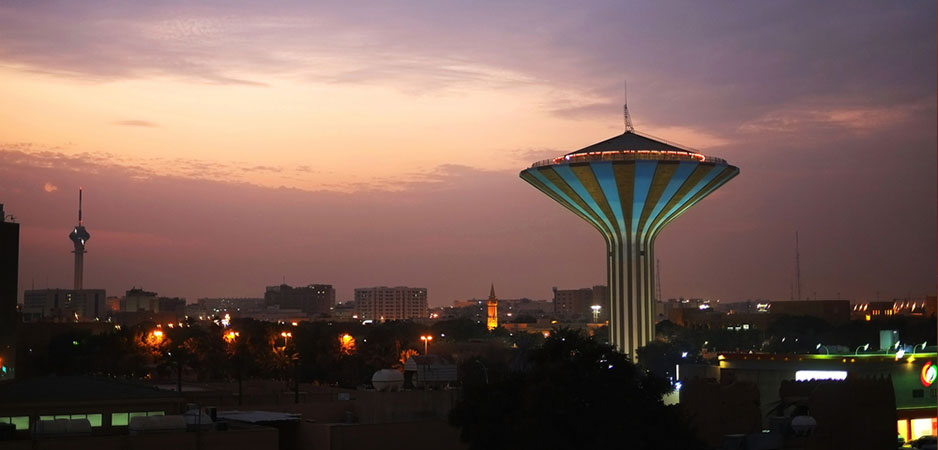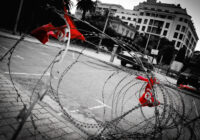A legal battle with Prince al-Waleed that publicly puts to the test the government’s assertions could upset the apple cart.
Incarcerated for almost two months in a gilded cage at Riyadh’s luxurious Ritz Carlton Hotel, Saudi billionaire Prince al-Waleed bin Talal appears to be putting up a fight. His latest move could challenge Saudi Crown Prince Mohammed bin Salman’s assertion that his purge of members of the ruling family, senior officials and businessmen constitutes a campaign against corruption.
Many of those detained in Prince Mohammed’s purge, which has been dubbed by critics as a power and asset grab dressed up as an anti-corruption effort, have bought their freedom by agreeing to surrender significant assets. The Saudi government has said it hopes to recover up to $100 billion in allegedly illegitimately acquired funds and assets. Prince Mutaib bin Abdullah, a favored son of the late King Abdullah and who was deposed as commander of the national guard in a bid to neutralize the Saudi crown prince’s most potent rival, secured his release by agreeing to pay $1 billion and signing a document in which he confessed to charges of corruption.
The Red Prince
In what appears to be the largest settlement demand, Prince al-Waleed has, according to The Wall Street Journal, resisted pressure by the government to hand over $6 billion. Instead, the prince has reportedly offered the government a significant stake in his Riyadh-listed Kingdom Holding, which has invested in blue chips such as Citibank, Twitter, Four Seasons Hotels and Disney, and operates a media and entertainment empire. Kingdom Holding has lost 14% of its $8.7 billion market value since al-Waleed’s detention. The prince has also insisted that he retain a leadership position in his conglomerate. With a fortune estimated by Forbes at $16.8 billion, Prince al-Waleed reportedly believes that the cash settlement demanded by the government would put his empire at peril and amount to an admission of guilt.
That may indeed be the purpose of the exercise. A social reformer, who years ago implemented within his own company changes to the status of women that Crown Prince Mohammed only announced in recent months, is Saudi Arabia’s most prominent entrepreneur who is frequently welcomed around the world by heads of state, governments and business moguls.
The son of Prince Talal bin Abdulaziz, a liberal nicknamed the Red Prince, who in the 1960s and again in the 2000s publicly criticized his family’s rule, Prince al-Waleed is believed to have no political ambitions. In resisting Prince Mohammed’s demands, al-Waleed is challenging an opaque and seemingly arbitrary process in which — despite assertions by the government that it has conducted extensive investigations and collected substantial evidence of corruption, bribery, money laundering and extortion — there has been little, if any, discernible due process and no proof publicly presented.
Quoting sources close to Prince al-Waleed, The Wall Street Journal reported that the businessman was demanding a full investigation and was willing to fight it out in court. “He wants a proper investigation. It is expected that al-Waleed will give MBS [Prince Mohammed] a hard time,” The Journal quoted a person close to Prince al-Waleed as saying.
 A court battle would put the government’s assertions of due process to the test. It would also shine a spotlight on the integrity of Saudi Arabia’s judicial system. The risk involved in a legal battle is that the charges leveled against Prince al-Waleed and others were common practice in a kingdom in which there were no well-defined rules governing relationships between members of the ruling family and the government, as well as ties between princes and princesses who wielded influence and businessmen.
A court battle would put the government’s assertions of due process to the test. It would also shine a spotlight on the integrity of Saudi Arabia’s judicial system. The risk involved in a legal battle is that the charges leveled against Prince al-Waleed and others were common practice in a kingdom in which there were no well-defined rules governing relationships between members of the ruling family and the government, as well as ties between princes and princesses who wielded influence and businessmen.
There is little doubt that Prince Mohammed’s purge is popular among significant segments of the population — half of which is classified as low- or middle-income families — that has long resented the elite’s seemingly unbridled perks.
Own Wealth
Prince Mohammed has so far been shielded against questions of the source of his own wealth and that of his tack of the ruling family. Several immediate relatives of Prince Mohammed were, in 2016, identified in the Panama Papers, which were leaked from the files of a law firm in the Central American nation that handled offshore business and transactions by the world’s mega-rich.
Media reports have since suggested that the prince has, in recent years, spent $1.25 billion on a $500-million yacht, $300 million on a mansion in France and $450 million on a Leonardo da Vinci painting. Prince Mohammed has denied buying the artwork that was acquired by a close associate of his — allegedly on behalf of the Abu Dhabi Department of Culture and Tourism.
Shining the spotlight on the anti-corruption campaign in a legal battle with Prince al-Waleed would come at a time that the government is unilaterally rewriting the kingdom’s social contract, which involved a cradle-to-grave-welfare state in exchange for the surrender of political rights and acceptance of Sunni Muslim ultra-conservative and Bedouin moral codes.
The government recently paid $533 million into a newly established social welfare fund to help families offset the cost of the imminent introduction of a 5% value-added tax on goods, including food and services, as well as subsidy cuts that would substantially raise the price of electricity and gasoline. The government was forced earlier this year to reverse a freeze on public sector wage increases and perks, and also slow down its austerity program because of anger and frustration expressed on social media.
Labor and Social Development Minister Ali al-Ghafis told the state-run Saudi Press Agency that approximately 3 million families or 10.6 million beneficiaries had already been paid the maximum relief of 938 Saudi riyals ($250) out of the newly created fund.
Earlier in December, the government announced a $19-billion stimulus package that includes subsidized loans for house buyers and developers, fee waivers for small businesses, and financial support for distressed companies. It also presented its new budget involving record spending in which the funding of defense outstrips that of education in a country with a 12.7% unemployment rate. Last year, a Bank of America Merrill Lynch report predicted that youth unemployment could jump from 33.5% to 42% by 2030.
Prince Mohammed is banking on continued public support for his economic and social reforms, and on the fact that once the dust has settled foreign investors will forget whatever misgivings they may have had about the lack of due process and absence of rule law in the anti-corruption crackdown. Foreign diplomats in the kingdom have noted that the businesses of those detained or penalized continue to operate, and that no foreign interests were caught up in the purge.
However, to maintain his popularity, Prince Mohammed will have to manage expectations, deliver jobs, continue to massage the pain of austerity and the introduction of a new social contract, and ensure that the public continues to perceive his purge as an anti-corruption campaign in which the high and mighty are no longer above the law.
A legal battle with Prince al-Waleed that publicly puts to the test the government’s assertions could upset the apple cart. That may be the leverage that al-Waleed hopes will work in his favor as he negotiates his settlement from the confines of the Ritz Carlton.
The views expressed in this article are the author’s own and do not necessarily reflect Fair Observer’s editorial policy.
Photo Credit: Crystal Eye Studio / Shutterstock.com
Support Fair Observer
We rely on your support for our independence, diversity and quality.
For more than 10 years, Fair Observer has been free, fair and independent. No billionaire owns us, no advertisers control us. We are a reader-supported nonprofit. Unlike many other publications, we keep our content free for readers regardless of where they live or whether they can afford to pay. We have no paywalls and no ads.
In the post-truth era of fake news, echo chambers and filter bubbles, we publish a plurality of perspectives from around the world. Anyone can publish with us, but everyone goes through a rigorous editorial process. So, you get fact-checked, well-reasoned content instead of noise.
We publish 2,500+ voices from 90+ countries. We also conduct education and training programs
on subjects ranging from digital media and journalism to writing and critical thinking. This
doesn’t come cheap. Servers, editors, trainers and web developers cost
money.
Please consider supporting us on a regular basis as a recurring donor or a
sustaining member.
Will you support FO’s journalism?
We rely on your support for our independence, diversity and quality.






